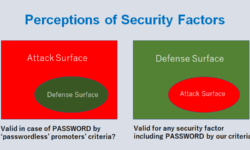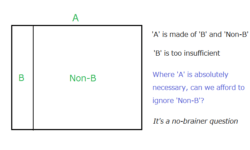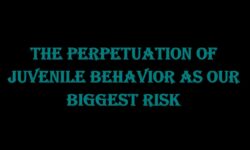By Natasha Gooden (PhD Student at the University of Leeds) and Subhajit Basu (Associate Professor, School of Law, University of Leeds).
The World Health Assembly agreed to conduct an independent review into the global response to the COVID-19 pandemic at its 73rd (virtual) Assembly, because of mounting public pressure from states. The Resolution to conduct the review was approved without objection from all of the World Health Organisation’s (WHO) 194 member states; the key focus is now on how the investigation will be conducted and what aspects will be examined to provide answers are still to be determined.[1] While the main priority is to curb the spread of the virus and protect and save lives, numerous questions have been raised surrounding the role and impact of international law on the pandemic.
WHO faces the unprecedented challenge of a global pandemic. COVID-19 has wreaked havoc and sadly claimed the lives of hundreds of thousands of victims. Rightly, the world is seeking answers and is turning to international law to shed light on the situation. Currently, there are more unknowns than knowns.
A growing range of debates are happening regarding the nature, origins, and purpose of the virus as a potential biological weapon, the responsibility that states have to declare and disseminate valid and reliable information, and the growing concerns surrounding human rights.[2] With the expanding discussion and academic attention, there remains no doubt that international law and its responses have been put into the spotlight; however, this leaves open questions as to how robust and effective international law is in addressing this extreme crisis.
The pandemic has already changed the world, bringing everyday life to a halt, and affecting the global population. Initial thoughts may have focused solely on the international regulation of health, but as the pandemic has unfolded, there have been more significant ramifications. At a time when the whole world is searching for answers, the first assumption is that international law has a clear framework and legal response to such a situation. While there are regulations in place, the intricate nature of international law is exposed to regulation weakness, limited cooperation, and a lack of enforcement that is reinforced through the dominance of state-based approaches. Inherent challenges of fragmentation have been highlighted for all to see. Politics, security, aviation and travel, the environment, agriculture, and economics are among the sectors impacted, which demonstrates the innate weaknesses of the international legal regime, where international institutions and international law and norms do not seamlessly fit together like a jigsaw – often highlighting gaps. This leads to the question; how can a policy-driven society have gaps in such a vital area of legal protection?
Is it not the purpose of international law to maintain international regulations and hold states and international organisations accountable? The answer is, of course, yes, however, is the attribution of blame and demanding reparations or compensation the way to move forward? Unfortunately, no. Nevertheless, independent international inquiries may show promise. After states and international organisations have reduced the spread and hopefully gained some form of control, then and only then can a narrative be sought as there will inevitably be numerous legal questions and a form of inquiry to ensure that international regulation can be strengthened, made effective, and adapt based on the devastating situation we find ourselves engulfed in.
Whilst there is a clear desire for an international inquiry, the primary concern is who should undertake such inquiry and who would ask the required independent questions? Would that be the World Health Assembly, domestic states, or another UN body? Selecting the right investigation panel will be key to determining a fair and independent inquiry which not only offers a comprehensive narrative but also allows for legal questions to be raised and addressed.
Undisputedly, the International Health Regulation 2005 (IHR) which is based on the WHO constitution, therefore it seems only logical for them to be at the forefront of inquiry.[3] To find a breach of the IHR, facts would need to be established; did China comply with IHR, did they notify them promptly when there was evidence of human-to-human transmission? Whether they would be found negligent or malicious, this fact would need to be proven. This itself could pose problems when investigated and cast doubt on whether the evidence would or even could still be obtained from the origins in Wuhan and whether too much time ha snow elapsed into establishing answers to the fundamental question of its origins. Furthermore, it must be questioned whether the WHO would be the most appropriate body; the IHR itself has no transparent monitoring or compliance system where only non-binding recommendations will be made. However, lessons could be learnt for the future. Strengthening and reforming the IHR may be a way to move forward; a way to enhance the regime would be to reform the constitution to allow more robust deterrence mechanisms to ensure state compliance through sanctions for example. Although, this avenue seems unlikely given the mandate of the body and the current geopolitics of the states. There have also been concerns raised regarding WHO acting complicit in its review of China’s actions. This concern is a politicised issue, and it has been cited by the US, potentially leading to the downfall and limited capacity of a WHO led inquiry.
An alternative possibility under the WHO constitution comes in the form of Article 75: a situation could be referred to the International Court of Justice (ICJ) through a dispute settlement.[4] The ICJ would not be driven by compensation or retribution, instead offering a clear focus on what did happen, again, this approach is not without its limitations. Generally, there are issues concerning the consensual-based nature of the courts, which therefore would lead to a lack of jurisdiction. This would lead to further problems of how to argue there was a breach in this instance, and which state would bring this forward – rather than just being a political circus which moves away from what is required, a coordinated international response.
Furthermore, there has been an increased number of claims in domestic courts. Predominantly, from the US, there are apparent issues surrounding jurisdiction and concerns around immunity.[5] Again, it must be questioned as to whether this would be the most appropriate avenue? Would it be productive and shape the current international legal regime given the heightened geopolitics? Court cases generally direct blame and financial compensation, which unfortunately does not impact upon the grief of loss or heightened guilt. However, the facts are essential to understanding how to move forward; there still needs to be cooperation between states.
One further possibility maybe through other UN bodies which would ensure a cooperative international approach. Similarly, to the WHO-led inquiry, this approach would move away from a full focus on blame, but it would progressively move forward and look to the future. The UN Secretary-General, António Guterres in March had urged the key enforcement body of the UN the Security Council to comment on the situation when he stated; “pandemic also poses a significant threat to the maintenance of international peace and security — potentially leading to an increase in social unrest and violence that would greatly undermine our ability to fight the disease.”[6] The Security Council’s inaction and silence again tested whether the international framework was effective. There was hope that the Council will act in a unified manner as it had to the Ebola outbreak. Where the Council in Resolution 2177 extended their remit to cover a public health crisis by asserting that the unprecedented extent of the Ebola outbreak in Africa constituted a threat to international peace and security.[7] The long-awaited Resolution 2523 did back the UN’s global humanitarian ceasefire,[8] however, did not have to reach of the previous resolution. The resolution omitted stating that COVID was a threat to international peace and security, and this focused on its primary mandate of conflict and humanitarian relief rather than the international health perspective. This, therefore, was weaker in substance and certainly too late into the crisis, which seemed to reduce their mandates reach purposively. It demonstrates the inherent political weakness of the Council and its permanent members in the current situation, leaving a void and ineffective international response.
A unified approach from the UN would be beneficial, and it would enable them to collaborate with other organisations. This leaves the question as to the potential role of the UN General Assembly or even the International law Commission. The International Law Commission was established as independent and to undertake the mandate of the Assembly, under article 13 (1) (a) of the Charter of the United Nations, it was formed to “initiate studies and make recommendations for the purpose of … encouraging the progressive development of international law and its codification”.[9]
After a suitable body is identified, the next and most challenging step on the agenda would need to be addressed; what would the main questions formulate around and seek to determine? There are so many questions in which the world is seeking answers. Would the suitable body address and have the investigatory powers to examine the potential area in which the virus originated from? Would it establish whether China offered enough notification of the virus to the rest of the world? Would it consider the role of the WHO and whether the WHO acted too late? Would it even go as far as focusing on whether national states are to blame for lack of preparation of vital equipment and PPE?
Whilst we are looking to identify this body and establishing the who, where, why, what, and how; the understanding of the pandemic has not even fully commenced. It is clear that international law, while it is fragmented, there are regimes and frameworks in place that have the potential to attempt to answer some of the questions and create the ability to respond and deal with a future pandemic in a more robust and coordinated manner. Will this opportunity to incorporate law be taken by the international community, or will the opportunity be lost?
[1] World Health Assembly, 73. (2020) Seventy-third World Health Assembly, 19 May 2020: COVID-19 Response. Access: https://apps.who.int/gb/ebwha/pdf_files/WHA73/A73_R1-en.pdf
[2] See: Sarah War on the Rocks – Gamberini and Amanda Moodie, ‘The Virus of Disinformation: Echoes of Past Bioweapons Accusations in Today’s Covid-19 Conspiracy Theories’ (6 April 2020) Access: https://warontherocks.com/2020/04/the-virus-of-disinformation-echoes-of-past-bioweapons-accusations-in-todays-covid-19-conspiracy-theories/. The Conversation – Will de Freitas, ‘Technology Threatens Human Rights in the Coronavirus Fight’ (7 May 2020) Access: https://theconversation.com/technology-threatens-human-rights-in-the-coronavirus-fight-136159.
[3] World Health Organisation, International Health Regulation (2005) https://apps.who.int/iris/bitstream/handle/10665/246107/9789241580496-eng.pdf?sequence=1
[4] World Health Organisation, International Health Regulation (2005) Article 75.
[5] See; Law & Crime, Matt Naham ‘China Sued for ‘Covering Up’ Coronavirus Pandemic in its ‘Own Economic Self-Interest’ (16 March 2020) Access: https://lawandcrime.com/lawsuit/china-sued-for-covering-up-coronavirus-pandemic-in-its-own-economic-self-interest/ and Matt Naham ‘Larry Klayman Files $20 Trillion Dollar Lawsuit Against China for ‘Creation and Release of Covid-19’ (19 March 2020) Access: https://lawandcrime.com/lawsuit/larry-klayman-files-20-trillion-dollar-lawsuit-against-china-for-creation-and-release-of-covid-19/
[6] United Nations Secretary General, António Guterres (9 April 2020) ‘Remarks to the Secuirty Scouncil on the COVID-19 Pandemic’. Access: https://www.un.org/sg/en/content/sg/speeches/2020-04-09/remarks-security-council-covid-19-pandemic
[7] UNSC Res 2177 (18 September 2014) Doc S/Res/2177. Access: https://undocs.org/S/RES/2177(2014).
[8] UNSC Res 2532 (1 July 2020) Doc S/Res/2532. Access: https://undocs.org/en/S/RES/2532(2020)
[9] United Nations, Charter of the United Nations, 24 October 1945, 1 UNTS XVI, Article 13(1)(a). Access; https://www.un.org/en/charter-united-nations/





 Should AI Be Considered As A Virtual Human Brain Or Another Species With Legal Rights Like Humans?
Should AI Be Considered As A Virtual Human Brain Or Another Species With Legal Rights Like Humans?